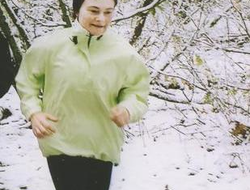Cancer: What's food got to do with it?
Published: January 14, 2021
"Hot dogs CAUSE butt cancer" screams the bulletin board while internet sites provide you with a list of "super foods" which will PREVENT cancer.
Is cancer prevention really as simple as eating the right food"? Not according to scientific research.
Quick facts
Cancer does not appear to be directly caused by eating a certain food product.
However, some foods when consumed frequently and in large amounts may increase your risk of certain types of cancer.
Studies suggest many other factors influence your risk of cancer:
- Beverages: pop, coffee, and alcohol may affect your risk of cancer
- Life stage, genes, and other diseases appear to influence your risk of cancer
- Body weight may have a significant impact on your cancer risk
- Physical activity appears to promote decreased cancer risk
- Tobacco smoking increases your risk for certain cancers
Current research
Food and cancer
Several foods have been identified as having potential cancer promoting and/or cancer inhibiting effects with respect to various cancers.
Studies suggest that it may be the amount of a particular food and/or how often you consume that food that may contribute to the potential risk.
The following foods may be associated with an increased or decreased risk of cancer.
- Dairy products: Prostate cancer, colon cancer, ovarian cancer.
- Eggs: Prostate cancer
- Vegetables: Prostate cancer, breast cancer
- Fruits: Skin cancer, breast cancer
- Fish: Prostate cancer
- Red meat: Colon cancer, breast cancer, lung cancer, pancreatic cancer
- Saturated fat: Breast cancer
- Soy: Studies are not conclusive
- Coffee:Prostate cancer, liver cancer, uterine/endometrial cancer
- Pop: Endometrial cancer
- Alcohol: Breast cancer, liver cancer
Vitamins, minerals, supplements and cancer
There is little conclusive evidence to support taking vitamin or mineral supplements to prevent cancer. In some instances certain vitamins and minerals when taken as a supplement may increase your risk of cancer.
Supplementation with the following nutrients may increase or decrease your risk of cancer.
- Calcium: Prostate cancer, colon cancer
- Vitamin D: Breast cancer, colon cancer, pancreatic cancer
- Folic acid: Colon cancer, breast cancer
- Vitamin E: Prostate cancer
- Beta-carotene: Lung cancer
- Vitamin B6: People with higher levels of vitamin B6 appear to have a lower risk of cancer.
Body weight and risk of cancer
Being overweight or obese is highly correlated with increased risk of many cancers:
Cervical, colon, gall bladder, kidney, liver, ovarian and uterine cancers, and leukemia. Heavier post menopausal women have a higher risk of breast cancer.
- Overweight is identified by a body mass index (BMI) greater than 25, and obese by a BMI of more than 30
- Being underweight may also increase your risk of several cancers.
Life stage/genes/environment
There are many factors which influence your risk of cancer. For more information about these factors link to the information sites:
Cancer, breast cancer, colon cancer, pancreatic cancer, prostate cancer, uterine cancer, ovarian cancer, lung cancer, liver cancer, bladder cancer, testicular cancer, and kidney cancer
Physical activity
- 150 minutes per week of moderate (walking) or vigorous (jogging/running) is associated with a reduced risk of several cancers.
- As little as 75 minutes per week may reduce your risk of some cancers.
- Breast cancer, prostate cancer, uterine cancer
To learn more about how you can decrease your risk of cancer link to the full article.
References
1.
Willett, W. (2011). Nutrition Action Health Letter. October 2011
2.
Nutrition Action (2007). Confusion at the Vitamin Counter. Vol. 34
3.
Whitney, E. & Rady Rolfes, S. (2005). Understanding Nutrition. Belmont, CA: Thomson Wadsworth
4.
Centre for Science in the public interestSeptember 2013, March 2013, January/February 2014, October 2014, November 2014, June 2014, September 2014, July/August 2015, September 2015, May 2015, June 2015, October 2015


